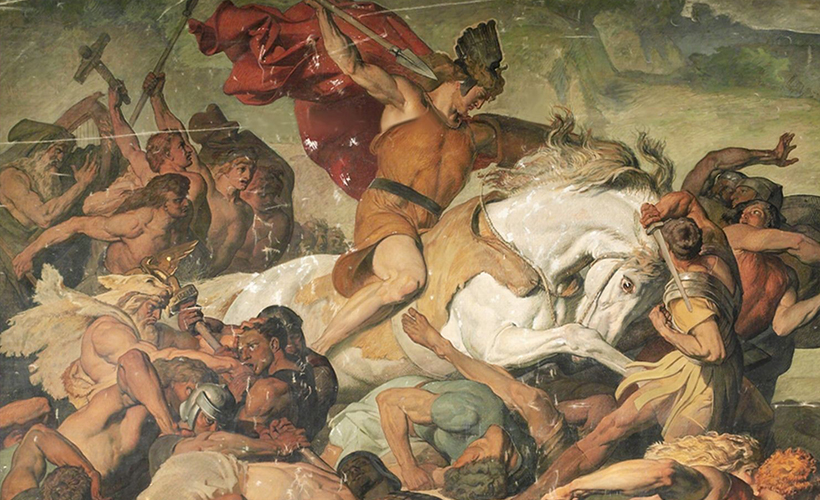Battle of the Teutoburg Forest: A Historical Controversy from Issues & Controversies in History

Was the “Varian disaster” responsible for Rome’s eventual failure to conquer Germania? Be sure to check out Issues & Controversies in History’s complete and unbiased coverage of this issue. Learn more about the issue and check out a sample of the pro/con arguments on both sides below.
THE ISSUE
In 9 CE, Arminius and a force of Germanic tribes defeated the Roman army at the Battle of the Teutoburg Forest in present-day Germany. This defeat dealt a psychological blow to the Roman Empire and ended any immediate plans the Romans had to invade Germania and incorporate it into the empire as a province. The rediscovery of primary sources in the 15th century ignited debate over the encounter and its impact. Did the Battle of the Teutoburg Forest prevent Rome from conquering and dominating Germania and bringing it into the empire?
| Arguments That the Battle of the Teutoburg Forest Prevented Rome from Conquering and Dominating Germania: | Arguments That the Battle of the Teutoburg Forest Did Not Prevent Rome from Conquering and Dominating Germania: |
| Some primary sources indicate that, after the defeat at the Battle of the Teutoburg Forest, the Roman emperor Augustus commanded his successor, Tiberius, not to attempt to expand the empire further. Indeed, Rome made few territorial gains in northern Europe after the defeat and was never able to occupy Germania. The region remained “barbarian” territory for centuries, contributing to a split in Europe between Germanic and Latin cultures and languages. | The order that the Roman emperor Augustus allegedly issued after the defeat at the Battle of the Teutoburg Forest commanding his successor, Tiberius, not to further expand the empire may not have existed, and even if it did, it was not followed. Rome later conquered Britain and parts of Europe north of the Danube River and reached its greatest size in the centuries after the battle. Furthermore, the Romans attempted to control Germania through political means rather than conquering it outright. |
Issues & Controversies in History links this pro/con article to rich related resources that enhance the debate. Students and researchers can delve into primary sources that provide context, a topic-specific timeline, a bibliography, and a thought-provoking “What if…” section that speculates what might have happened had Varus had won the Battle of the Teutoburg Forest.
What Is Issues & Controversies in History?
Issues & Controversies in History is a multimedia solution for exploring compelling controversies and debate topics from U.S. and World history. Unbiased pro/con articles, primary sources, videos, and discussion questions help researchers analyze influential events of the past, assess and understand different views, and distinguish facts from opinions. It’s framework for informed inquiry supports critical thinking and unlocks understanding of historical conflicts and interpretations to empower effective communication about controversial topics.